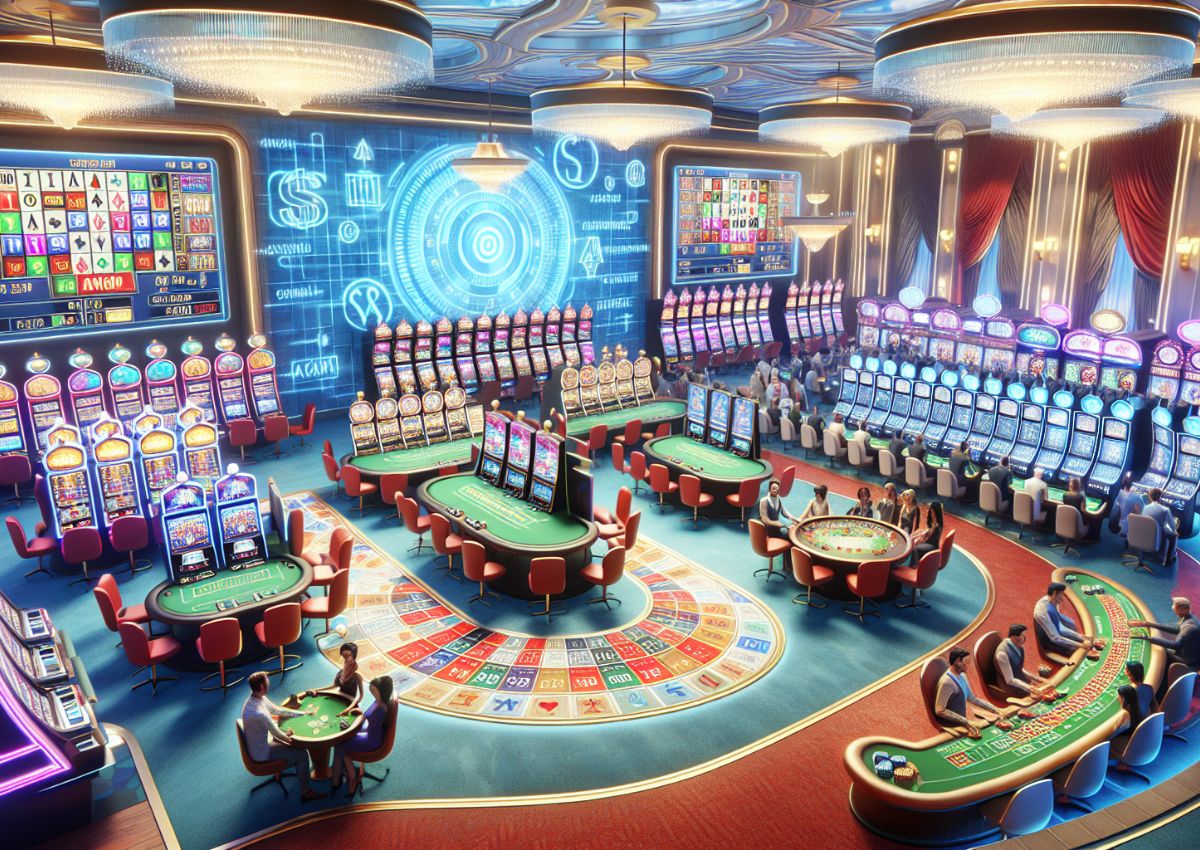A realm of gambling games is continuously evolving, influenced by changing regulations, technological progress, and evolving consumer preferences. While authorities and regulatory bodies strive to create a safe and fair environment for players, the landscape of casino regulations is undergoing major modifications. Grasping these shifts is crucial for both sides of casino operators and gamblers looking to navigate the exciting yet intricate realm of gambling.
Lately, various regions have suggested and implemented new regulations targeting enhancing player protection while encouraging ethical gaming. These updates not only impact the types of gambling games offered but also how they are advertised and accessed. In this piece, we will explore the latest regulation changes, their effects for the gambling sector, and that which players can look forward to as they engage with their preferred casino games.
Updated Regulatory Frameworks

Current developments in game rules are defining the prospects of casino entertainment across different jurisdictions. Authorities are realizing the importance for a comprehensive governance framework that not just safeguards customers and also ensures fair play and sensible gambling. These guidelines are designed to tackle concerns such as online gaming, digital currencies, and advancements in technology, reflecting the changing landscape of the gaming field.
One notable development is the implementation of stricter regulations regarding clarity and consumer safety. Gambling venues are now required to provide concise information on odds, winnings, and the potential dangers associated with betting. This change aims to enable gamblers by allowing them make informed decisions while also aiding to fight gambling problems through accountable play measures. Operators are expected to establish self-restriction programs and offer assistance for players seeking aid.
Additionally, novel laws are being implemented to new innovations such as virtual reality and distributed ledger technology in gaming activities. Oversight bodies are developing frameworks to assure that these innovations maintain authenticity and fairness while also protecting customer data. As the field evolves, oversight bodies are modifying to verify that innovations enrich the casino environment while protecting both players and operators.
Effect on Game Diversity
The new changes in gaming rules have opened novel opportunities for casino games, allowing for increased innovation and diversity within the sector. As oversight agencies modernize their standards, game developers are motivated to create original gameplay experiences that address a larger market. This has led to a vibrant tapestry of innovative games, incorporating various topics, genres, and mechanics that were previously neglected or limited by more rigid regulations.
With a more flexible regulatory framework, gambling venues are now able to try out different game formats, including games of skill and interactive experiences. This shift has produced a surge in fusion games that combine conventional casino elements with modern gaming styles, such as digital gaming and AR. By diversifying the game offerings offered, gambling establishments can appeal to not only seasoned betters but also non-professional players who may lean towards more unique choices.
Moreover, the evolution of rules has highlighted clarity and fairness in gaming, which could build increased confidence among players. kèo nhà cái As a consequence, consumers are more open to consider a broader selection of gaming experiences, realizing they are interacting with sites that adhere to new standards. This growing trust enhances engagement and can ultimately propel revenue growth as more broad offerings meet diverse interests and demographics in the gambling landscape.
Emerging Transitions in Oversight
As the gaming landscape changes, authorities are more and more focused on adopting technology-based solutions to enhance transparency and justice. The incorporation of crypto technology into gaming games is expected to gain ground, allowing for greater oversight of operations and ensuring that activities remain just and tamper-proof. This change could lead to a regulatory framework that embraces these advancements, promoting faith among participants and providers alike.
In addition to tech-based incorporation, there will likely be a stronger emphasis on responsible gaming practices within the oversight environment. Authorities are expected to implement tougher measures to promote player protection, including compulsory self-exclusion programs and strong age verification processes. This shift aims to protect vulnerable populations while ensuring that the experience of gaming games is preserved for responsible gamblers.
Lastly, as internet gaming continues to grow globally, harmonization of oversight across different jurisdictions will become a pressing need. Countries may seek to partner more closely on unified standards for certification, operation, and taxation. This could lead to a more simplified regulatory system for international operators, fostering a wider acceptance of internet gaming games while maintaining strong of player protection and fairness in the gaming industry.